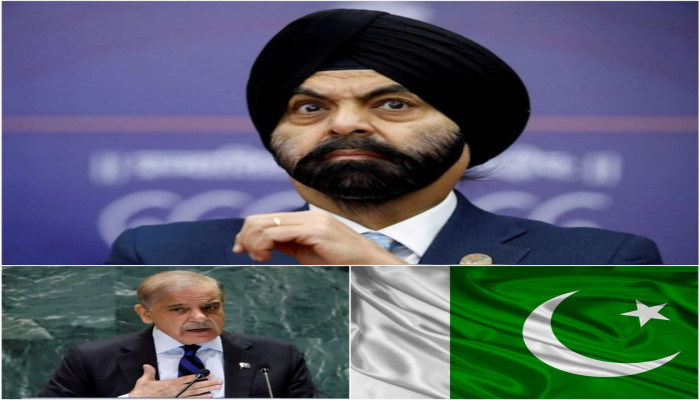World Bank chief clarifies role in Indus Water dispute, says we're only a facilitator amid Pakistan setback
- In Reports
- 05:02 PM, May 09, 2025
- Myind Staff
In a blow to Pakistan, the World Bank has dismissed claims that it might intervene to make India resume the Indus Water Treaty. World Bank President Ajay Banga made it clear that the bank’s role is limited to that of a mediator and not an enforcer in this bilateral matter. “There’s a lot of speculation in the media about how the World Bank will step in & fix the problem, but it’s all bunk. The World Bank’s role is merely as a facilitator,” Banga informed CNBC.
Late last month, Islamabad declared it would take the matter to the World Bank in an effort to overturn what it described as the “unilateral and illegal” move. India had put the 1960 treaty on hold after a deadly terrorist attack in Jammu and Kashmir claimed 26 lives, with Indian officials confirming that Pakistani nationals were involved. In response, Pakistan pledged to protect its “vital national interest” for its 240 million nationals "at all costs". “We sent several letters to them, requesting for negotiation to discuss modification of this treaty. India has, for six plus decades, honoured this treaty,” Misri stated. “Pakistan is the one which has been acting in violation of this treaty. Pakistan is the one acting in violation of the treaty, deliberately creating roadblocks in India, exercising its legitimate rights over the western rivers,” he said during the briefing.
Following the attack in Kashmir, the Indian government made several key decisions, including suspending the Indus Waters Treaty. It also closed the Attari-Wagah border, expelled senior Pakistani military officials from India, and revoked all short-term visas previously granted to Pakistani citizens. The Indus Waters Treaty, signed on September 19, 1960, in Karachi, was brokered by the World Bank. It was an agreement between Indian Prime Minister Jawaharlal Nehru and Pakistan’s President Ayub Khan, outlining how water from rivers like the Ravi, Beas, Sutlej, Jhelum, Chenab, and Kabul would be shared between the two countries.
According to the Indus Waters Treaty, India has “unrestricted access” to the Eastern rivers, Ravi, Beas, and Sutlej, while Pakistan uses the Western rivers—Indus, Chenab, and Jhelum. However, India is allowed to use water from the western rivers for limited purposes like non-consumptive use, agriculture, household needs, and generating hydroelectric power. Under Article III (4), the treaty also specifies that India “shall not store any water of, or construct any storage works on, the Western Rivers,” unless clearly permitted by the treaty itself.







Comments